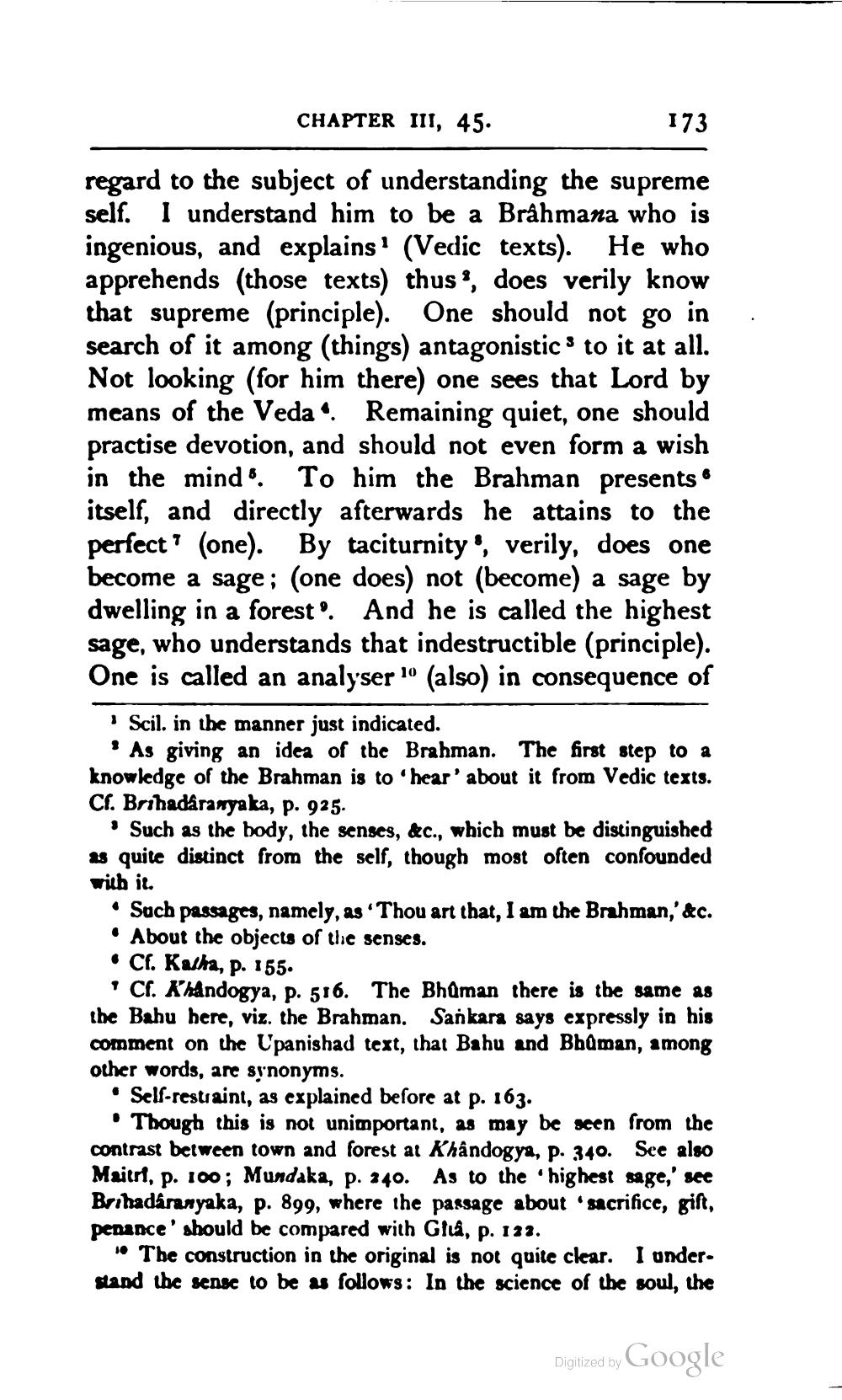________________
CHAPTER II, 45.
173
regard to the subject of understanding the supreme self. I understand him to be a Brahmana who is ingenious, and explains' (Vedic texts). He who apprehends (those texts) thus, does verily know that supreme (principle). One should not go in search of it among (things) antagonistics to it at all. Not looking (for him there) one sees that Lord by means of the Veda Remaining quiet, one should practise devotion, and should not even form a wish in the mind. To him the Brahman presents itself, and directly afterwards he attains to the perfect' (one). By taciturnity', verily, does one become a sage; (one does) not (become) a sage by dwelling in a forest'. And he is called the highest sage, who understands that indestructible (principle). One is called an analyser 10 (also) in consequence of
' Scil. in the manner just indicated.
"As giving an idea of the Brahman. The first step to a knowledge of the Brahman is to hear' about it from Vedic texts. Cl. Brihadåranyaka, p. 925.
• Such as the body, the senses, &c., which must be distinguished as quite distinct from the self, though most often confounded with it.
• Such passages, namely, as 'Thou art that, I am the Brahman,'&c. • About the objects of the senses. • Cf. Kasha, p. 155.
' Cf. K'handogya, p. 516. The Bhaman there is the same as the Bahu here, viz. the Brahman. Sankara says expressly in his comment on the L'panishad text, that Bahu and BhQman, among other words, are synonyms.
• Self-restraint, as explained before at p. 163.
• Though this is not unimportant, as may be seen from the contrast between town and forest at Khandogya, p. 340. See also Maitri, p. 100; Mundaka, p. 340. As to the 'highest sage,' see Brihadaranyaka, p. 899, where the passage about sacrifice, gift, penance' should be compared with Giá, p. 133.
" The construction in the original is not quite clear. I under. stand the sense to be us follows: In the science of the soul, the
Digitized by Google




